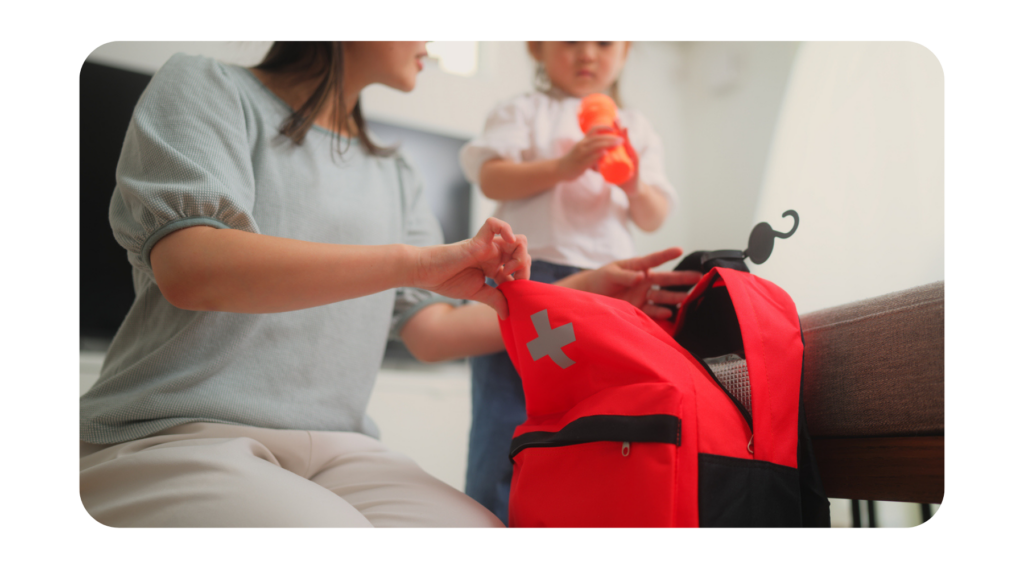What to Do If You’re Injured on an Airbnb Property: Your Legal Rights and Next Steps
Staying at an Airbnb can offer a cozy, homey experience—until an accident happens. Whether you’ve tripped on loose stairs, slipped on an unmarked wet floor, or hurt yourself working with a faulty appliance, in moments like these, knowing how to proceed can make a world of difference.
If you’ve been injured at an Airbnb, here’s your guide on how to handle your injury, understand your rights, and seek fair compensation.
Immediate Steps to Take

After an injury, your first priority should be your health. Even if the injury seems minor, get medical help as soon as possible, as some issues—like concussions or fractures—might not be obvious right away and could become more serious later on. Seeing a doctor also creates an official record of your injury, which can be crucial if you decide to pursue a claim.
Once you’re stable, gather as much evidence as possible. Take photos of the scene, any visible injuries, and the specific hazard that caused your accident. If anyone else witnessed the incident, try to get their contact information and a brief statement. This documentation will be invaluable later if you need to demonstrate the cause of your injury and its impact on your life.
Finally, inform the host and Airbnb. Send a brief, factual message to your host, letting them know what happened. Then, report the incident to Airbnb through their app or website. Airbnb has an incident reporting system that can help start an official record of what happened, which could be important for an insurance claim or legal process.
Airbnb Liability and Host Responsibility
Airbnb operates on a principle known as premises liability—a legal standard that holds property owners responsible for maintaining a safe environment. When you stay at an Airbnb, the host is generally accountable for ensuring that their property is safe and free of hazards. If the host fails to fix a known issue or doesn’t take reasonable steps to make the property safe, they could be held liable.
For example, if a host is aware of a loose step on a staircase but doesn’t repair it, and you’re injured as a result, this oversight could constitute negligence. However, not every accident at an Airbnb automatically qualifies for compensation. You would need to show that the host knew about or should have reasonably known about the hazard, and that their negligence directly caused your injury.
Does Airbnb’s Host Protection Insurance Apply?

Airbnb offers Host Protection Insurance, which provides up to $1 million in liability coverage for hosts. This coverage can help address injuries due to the property’s condition. However, there are limits to what it covers. For example, the insurance might not apply in cases where the guest’s own actions caused the injury or in situations involving certain property conditions, like mold or issues beyond the host’s control.
If your injury is covered by Airbnb’s insurance, this can simplify things, but coverage depends heavily on the specific details of your incident. Airbnb’s protection plan is designed as a safety net, but it’s worth reviewing the policy terms to see if your case qualifies.
Building a Strong Case with Documentation
Documentation is key in personal injury cases. Collect as much evidence as you can, including:
- Photos and Videos: Capture the accident scene, your injuries, and any specific hazards.
- Medical Records: Keep a detailed record of doctor visits, treatments, prescriptions, and related expenses.
- Communication: Save all messages between you, the host, and Airbnb, as they may contain helpful information about the property’s condition and the host’s awareness of any issues.
This evidence can establish the severity of your injuries, the circumstances of the accident, and your medical and financial losses. Organized records strengthen your case and give you a clearer understanding of the impact of the injury on your life.
Seeking Compensation for Your Airbnb Injury

If you decide to pursue a personal injury claim, there are several types of compensation you could seek, including:
- Medical Costs: Immediate and ongoing treatment, such as doctor visits, prescriptions, and rehabilitation.
- Lost Income: If you cannot work due to your injury, you may be entitled to compensation for lost wages.
- Pain and Suffering: This covers physical pain and emotional distress caused by the injury.
The compensation you can pursue will depend on the severity of the injury and its impact on your life. In some cases, Airbnb or the host’s insurance may offer a settlement, but it’s wise to consult with a personal injury attorney to ensure you’re fully covered and not accepting a low offer.
Legal Considerations and California’s Comparative Negligence Rule
In California, comparative negligence allows for shared fault in personal injury cases. Even if you’re partly responsible for your injury (for example, if you slipped while running down a wet hallway), you may still recover damages. However, any compensation you receive might be reduced by the percentage of fault assigned to you. A personal injury attorney can help you navigate this and negotiate a fair outcome based on the specifics of your case.
Moving Forward After an Airbnb Injury With LMS Law
Dealing with an injury while staying at an Airbnb can be both painful and overwhelming, especially when you’re unsure of your legal rights. At LMS, we’re here to guide you through every step of the process, from documenting evidence to pursuing the compensation you deserve. Prioritize your health, gather essential records, and call our experienced team for a free consultation.
The above is not meant to be legal advice, and every case is different. Feel free to reach out to us at LMS Law if you have any questions. Information contained in this content and website should not be relied on as legal advice. You should consult an attorney for advice on your specific situation.
Visiting this site or relying on information gleaned from the site does not create an attorney-client relationship. The content on this website is the property of LMS Law and may not be used without the written consent thereof.




